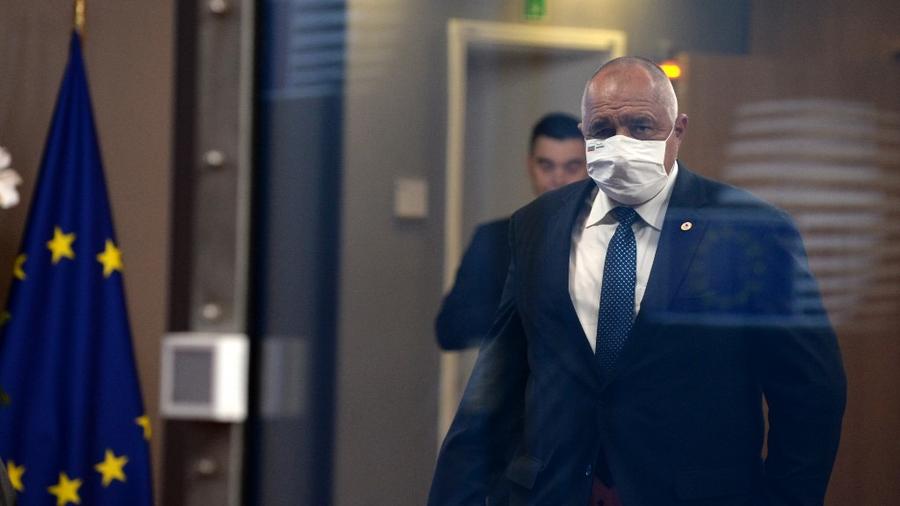 Bulgaria's Prime Minister Boyko Borissov leaves after a last roundtable discussion following a four days European summit at the European Council in Brussels, Belgium, early July 21, 2020. (JOHANNA GERON / POOL / AFP)
Bulgaria's Prime Minister Boyko Borissov leaves after a last roundtable discussion following a four days European summit at the European Council in Brussels, Belgium, early July 21, 2020. (JOHANNA GERON / POOL / AFP)
Bulgarian Prime Minister Boyko Borissov is considering stepping down after a month of anti-corruption protests but wants to keep his governing coalition intact until its term expires next year.
Borissov, who’s resigned twice before in on-and-off stints as prime minister over the past decade, said he’ll discuss his possible withdrawal with coalition partners to preserve the government. Still, Bulgaria needs a functioning parliament to face the upcoming economic crisis, he said on Wednesday.
Bulgaria, a European Union member since 2007, has been repeatedly criticized for its failure to fight corruption and reform its judiciary
“I’m ready to leave at any time,” Borissov told a party event in Sofia. “I’ll continue talks with my coalition partners and I’ll offer them options.”
ALSO READ: Bulgaria parliament approves government reshuffle amid protests
Thousands of people have rallied in Sofia and other cities since early July, calling for the resignations of Borissov and Chief Prosecutor Ivan Geshev over their failure to fight high-level graft. Opposition-backed President Rumen Radev has accused both of having links to the mafia, which they have denied.
Bulgaria, a European Union member since 2007, has been repeatedly criticized for its failure to fight corruption and reform its judiciary. It ranks as the EU’s worst in Transparency International’s Corruption Perception Index.
Borissov’s third cabinet has worked to raise living standards and advance Bulgaria’s path to the euro, but it has been marked by corruption scandals and numerous investigations against ministers and administration officials.
He resigned after mass protests in 2013 and after his party candidate lost the presidential election to Radev. Since 2017, Borissov has run a coalition with the United Patriots, a loose alliance of nationalist parties.
His Gerb party has the support of 14,5 percent of voters, while the opposition Socialists follow with 10.4 percent, with as many as 45 percent undecided, according to a survey published by pollster Alpha Research Monday.
READ MORE: Bulgarian PM reshuffles government to quell protests
“I don’t want the country to be divided by any means,” Borissov said. “Our coalition agreement says we have to complete our term.”


